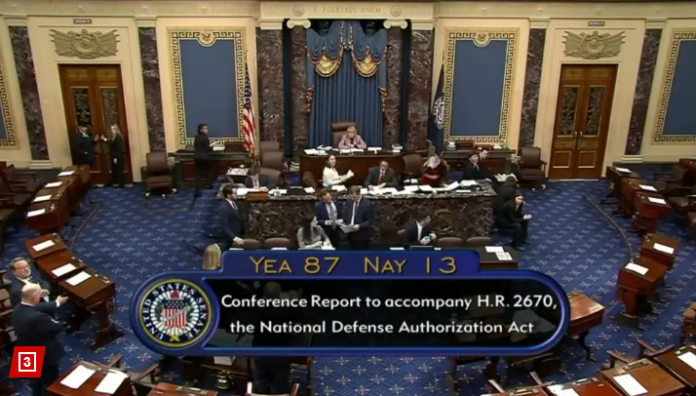The Senate approved an unprecedented $886 billion in military expenditure for the year 2024 subsequent to the successful passage of the annual National Defense Authorization Act on Wednesday.
The essential 3,000-page bill garnered robust bipartisan backing in the upper chamber, securing approval in the Senate with an 87-13 vote. It is now on its way to the House, with anticipation that they will address it before legislators conclude their sessions for the holidays on Thursday.
The Senate, under Democratic control, avoided addressing social issues significant to conservative legislators. They opted not to incorporate measures from the House version of the legislation passed earlier this year, which included restrictions on abortion access and transgender healthcare treatment for military personnel and their families.
Senator Tommy Tuberville (R-Ala.) engaged in a 10-month protest, obstructing all military promotions, in response to a Pentagon policy that provides reimbursement for out-of-state travel expenses for service members undergoing abortions.
The law prolongs the validity of Section 702 in the Foreign Intelligence Surveillance Act until April 19. This authority for surveillance, enabling the monitoring of foreigners in the United States without the necessity of warrants, was initially scheduled to terminate at the close of December.
The legislation also offers the most substantial salary increase for service members in over 20 years, elevating troop pay by 5.2% in the coming year as a strategy to enhance military recruitment and retention.
The 2024 NDAA, which establishes the Pentagon’s budgetary focus for the fiscal year, contains clauses directing $11.5 billion to oppose China’s presence in the Indo-Pacific and allocating $800 million in military support to Ukraine.
Before the week concludes, President Biden has urged Congress to endorse an extra $61 billion in aid for Ukraine.
Members of both the Republican and Democratic parties in Congress have indicated that the 81-year-old president’s urgent funding proposal for the conflict-affected nation is not expected to gain approval in the near future. This is particularly due to GOP insistence on incorporating alterations to the US immigration law within the Ukraine assistance bill.













